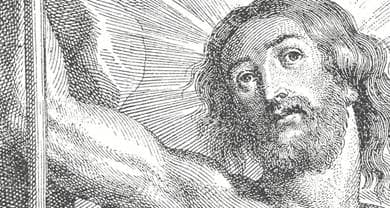- Trending:
- Forgiveness
- |
- Resurrection
- |
- Joy
- |
- Trump
- |
- Kamala Harris
- |
- Supreme Court

RELIGION LIBRARY
Anglican/Episcopalian
Anglicanism (or Episcopalianism) is the term associated with the common forms of worship, structure, and doctrine that developed over the course of the English Reformation. This began in 1534 C.E., when the king of England removed the pope of Rome as the head of the Church in England and placed himself in the position. Over the next 130 years, a struggle between Roman Catholicism and various strands of Protestantism continued in England, with Protestantism finally winning out, but in a unique form. The outcome was a unique blend of mainly Reformed Protestant doctrinal positions with Catholic-influenced forms, such as highly liturgical worship and an episcopal (that is, bishop-led) institutional structure. Thus, Anglicanism is thought of as a via media or middle way between Protestantism and Catholicism. Since the Reformation, Anglicanism has spread worldwide and been influenced by Evangelical, Catholic, and Liberal movements, resulting in a highly diverse tradition. Anglican faith and practice are informed by the Bible, the traditions of the Church, and human reason, by the Book of Common Prayer (the Anglican book of worship), and to a lesser extent the 39 Articles of Religion (England's Reformation-era confession of faith). The Anglican Communion consists of geographically defined Anglican church bodies (called "provinces") located worldwide, each of which is in communion with, but independent of, the Church of England. In the United States, the Episcopal Church is part of the Anglican Communion.
Quick Facts
| Formed | 1534 |
| Adherents | 70,000,000 |
| Deity | God (Trinity) |
| Sacred Text | Bible |
| Origin | England |
| Headquarters | Canterbury |










